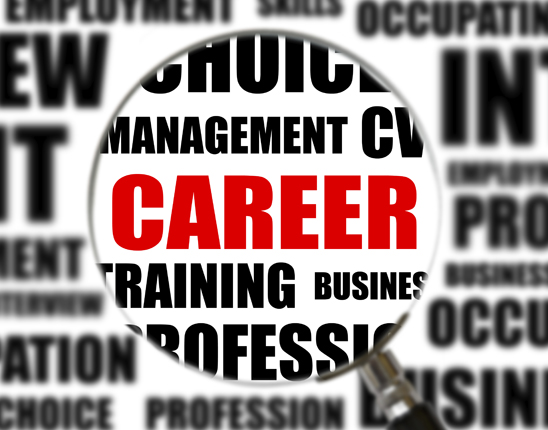In part 1 I outlined the basic knowledge and skills you need to become a copyeditor. The list is long, but even the longest training programs (university certificate programs with several courses) can be finished within a year. And once you’ve done the training, you’re ready to go, right?
Well …
Editing is a craft. It takes a certain skill level to apply the art and science of editing to manuscripts. Each manuscript is unique, with a unique collection of errors. You likely won’t deal with those errors the same way another editor does, yet both efforts can result in a pleasing, (mostly) error-free document. But this ability takes time to develop.
Your training gave you the basics of the craft. Consider it your apprentice stage. Once you’ve completed your apprenticeship, you’re ready to practice what you’ve learned, refining your approach and crafting ever-better text.
Your journeyman stage continues your training through, frankly, making mistakes and receiving steady feedback from masters in the field (senior editors). You can’t improve what you don’t recognize is a mistake or is weak. Many copyeditors spend three to five years in the journeyman stage, though this is unofficial and every editor is different.
Yet where are those masters who can evaluate your work and give you helpful feedback?
There are still a few people lucky enough to work on an editing team that has a senior editor or two. If there isn’t a formal training or mentoring program set up, ask one of the senior editors to mentor you.
When I was in my journeyman phase, I worked on such a team. The managing editor worked with the newest editors, reading behind us and giving us a ton of valuable feedback to help us improve.
When the managing editor felt we were ready, she assigned the senior editors to continue the feedback process. It was a fantastic experience, and I still think fondly of those editors who helped me hone my craft. By the time I was ready to fly solo, I had had input from three or four experienced editors, as well as training given to the entire staff.
These days, such support seems almost mythical. Most editors, whether employees or freelancers, have to seek out their own continued professional development (CPD). What should you look for?
Mentoring
One-on-one mentoring has clear advantages. Because you and your mentor get to know each other and your work styles well, your mentor can give you advice suited specifically to you.
If you know a senior editor whose skills you admire, ask them to mentor you. Keep in mind that this is a volunteer position (unless you have the bucks to pay them!), so be respectful of your mentor’s time by showing up, closely defining your needs, and following through on your promises. And don’t forget to thank them.
Some professional organizations offer mentoring, either as part of membership benefits or for an additional fee. The Society for Editors and Proofreaders is one. Editors Canada is another. The Copyeditors’ Knowledge Base lists a couple more opportunities. Consider not only what you need mentoring on but how you learn best.
Topic-Specific Lessons
Maybe you’ve discovered that you’re weak on correcting math errors. Or perhaps your mentor has noticed that you struggle with writing good author queries. With this knowledge, you can seek out further training.
Look for webinars, workshops, and conference sessions on your trouble spot. Topic books and workbooks can help, too.
Study Groups
If you like the group dynamic, you could start a study group to tackle specific topics. To master The Chicago Manual of Style, for example, you and your study partners could each take a section of the manual to learn and then teach others in the group.
A Word of Caution
It’s tempting to find an editors’ discussion group and ask the group all your questions. Part of the value of such discussion groups is getting answers to your questions, and editors like to be helpful. However, there are two things to keep in mind.
First, as a new editor, you’re likely to have a lot of questions. As in most mentoring situations, people are responding out of the goodness of their hearts. Respect that by:
- Refining your question until it is specific and answerable. If you’re struggling to narrow your query, ask it in a way that allows responders to guide you to something answerable.
- Respecting other people’s time. Don’t overwhelm the group with lots of questions all at once. When a group becomes clogged with basic or unanswerable questions, more advanced questions and deeper discussions that benefit everyone get pushed out.
Second, when you ask a large group a question, you’ll get a variety of answers from a variety of people. Will the responses fit your situation? How will you know, especially if you’re new to the group?
Again, make your question specific, giving as much detail as seems necessary. Be open to respondents asking for more detail so they can answer the question. If you’d like an answer from editors with a particular skill or experience, address your question specifically to them.
Editor discussion groups are a great resource, but they can’t replace intensive training. Don’t try to use them as such.
Don’t Despair!
As with initial training, CPD can seem overwhelming and becoming a seasoned editor can seem impossible. It’s not. It just doesn’t happen overnight. Editors learn throughout their careers, no matter how senior they are. Be honest about your weaknesses, keep learning, and keep practicing. You can get there.
Next up: How to get copyeditor training on the job—and how not to.
Previous: How to get your training started.
An earlier version of this article was published on Copyediting.com on September 28, 2018.



One thoughts on “Breaking into Copyediting, Part 2: Continuing Your Training”